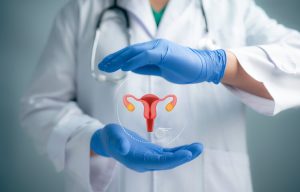Artificial intelligence (AI) and machine learning (ML) can effectively detect and diagnose polycystic ovary syndrome (PCOS), the most common hormonal disorder in women typically aged 15 to 45, according to a study by the National Institutes of Health.
Researchers systematically reviewed published scientific studies that used AI/ML to analyze data for the diagnosis and classification of PCOS and found that AI/ML-based programs were successful at detecting PCOS. “Given the high burden of under- and misdiagnosed PCOS in the population and its potentially serious consequences, we wanted to determine the utility of AI/ML in identifying patients at risk for PCOS,” said Janet Hall, M.D., senior investigator and endocrinologist at the National Institute of Environmental Health Sciences (NIEHS), part of NIH, and co-author of the study.
How Artificial Intelligence Can Identify Polycystic Ovary Syndrome
PCOS occurs when the ovaries do not function properly and is associated with elevated testosterone levels in many cases. The disorder can cause irregular periods, acne, additional facial hair or hair loss. Women with PCOS often have an increased risk of developing type 2 diabetes. They also often suffer from sleep, mental, cardiovascular, and other reproductive disorders such as uterine cancer and infertility. Diagnosing PCOS can be difficult due to its overlap with other conditions. These data reflect the untapped potential of integrating AI/ML into electronic health records and other clinical settings to improve the diagnosis and care of women with PCOS.
The study authors suggested that large population-based studies be integrated with electronic health records and common laboratory tests analyzed to identify sensitive diagnostic biomarkers that can aid in the diagnosis of PCOS. The diagnosis is based on generally accepted standardized criteria that have evolved over the years, but typically includes clinical features (e.g., acne, excessive hair growth, and irregular periods) accompanied by laboratory (e.g., high blood testosterone levels) and radiological (e.g., multiple small cysts and increased ovarian volume on ovarian ultrasound) . However, because some of the characteristics of PCOS can coexist with other conditions such as obesity, diabetes and cardiometabolic disorders, it often goes undiagnosed.
AI refers to the use of computer-based systems or tools that mimic human intelligence and assist in decision-making or prediction. Machine learning is a subcategory of AI that focuses on learning from past events and applying that knowledge to future decisions. AI can process vast amounts of diverse data, such as that found in electronic health records, making it an ideal aid in diagnosing difficult-to-diagnose conditions like PCOS.
Integration of AI/ML for Chronic Conditions
The researchers conducted a systematic review of all published peer-reviewed studies using AI/ML to detect PCOS in the last 25 years (1997-2022). With the help of an experienced NIH librarian, the researchers identified potentially suitable studies. In total, they screened 135 studies and included 31 in this work. All of the studies were observational and examined the use of AI/ML technologies in patient diagnosis. Ultrasound images were included in about half of the studies. The average age of study participants was 29 years. Among the 10 studies that used standardized diagnostic criteria to diagnose PCOS, detection accuracy ranged from 80 to 90%.
The authors conclude that AI/ML-based programs have the potential to significantly improve our ability to identify women with PCOS early, which is associated with cost savings and reduced PCOS-related burden on patients and the healthcare system. Follow-up studies with solid validation and testing procedures will enable the smooth integration of AI/ML in chronic diseases.





